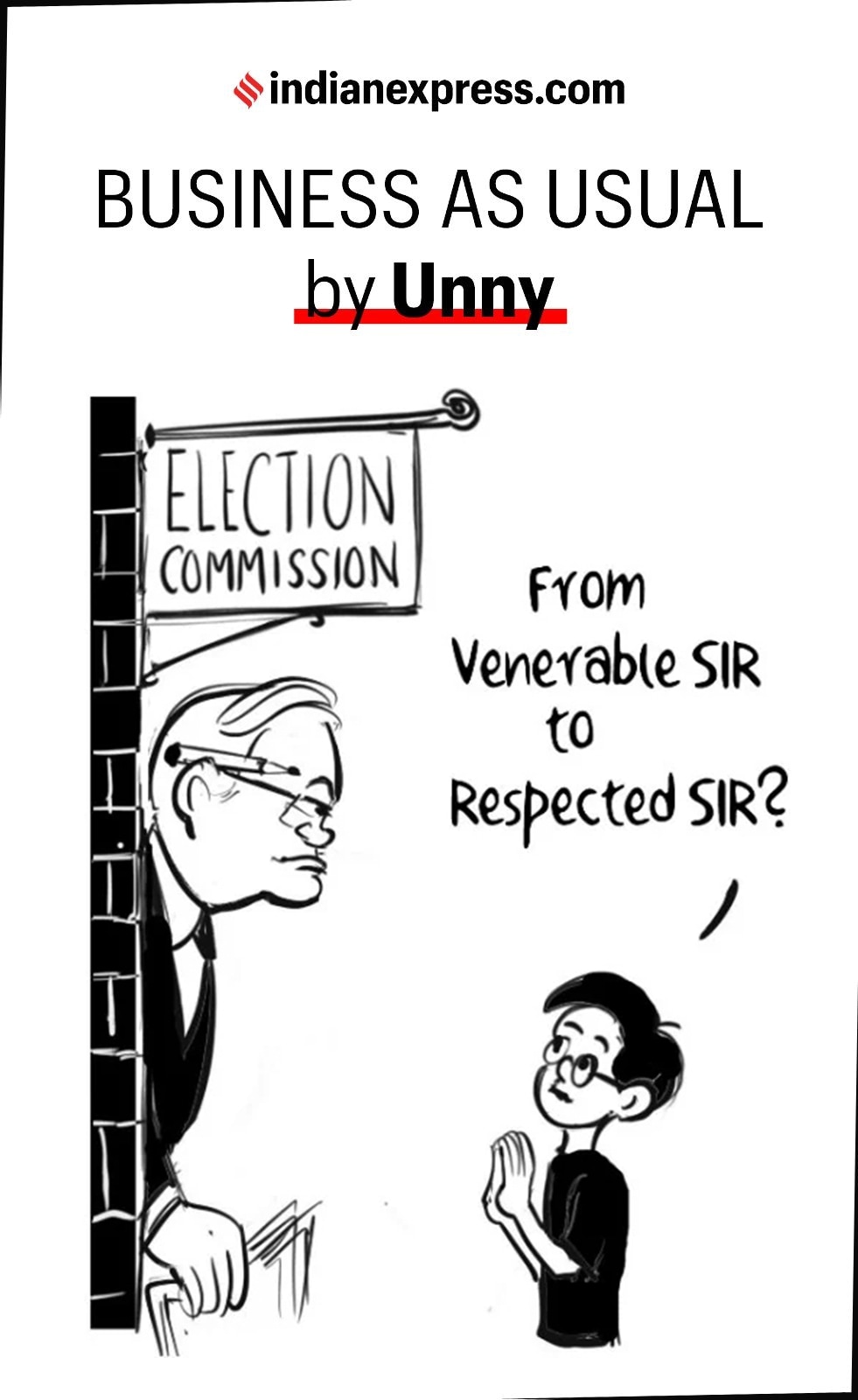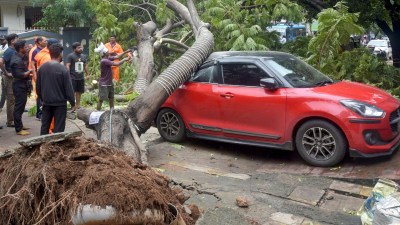
🚨 Big Story
Poor air quality has become somewhat of a permanent resident in India’s national capital. And every year in November, when it’s usually at its worst, it makes national (and international) headlines. This year, the BJP-led Delhi government is trying a new solution to bring down the air pollution levels: cloud seeding.
Story continues below this ad
The idea is that rain can wash away air pollutants. Two trials were carried out in collaboration with IIT Kanpur. A Cessna 206H aircraft was used to fire flare guns with silver iodide and sodium chloride in moisture-bearing clouds. This was a first for Delhi; the last such attempt was made nearly 50 years ago in India. But several countries have used artificial rain in the past to combat air pollution or drought. The experiment has generated much debate worldwide, from environmental to efficiency concerns. Will it work?
What is cloud seeding? Clouds usually form when water vapour condenses around small air particles to form a droplet. These droplets collide, grow, and get heavy. Eventually, the cloud gets saturated, and it rains. Cloud seeding introduces a ‘seed’ — in this case, silver iodide — in the process, or particles around which more droplets can form. Learn all about the process here.
The challenges: We reached out to one of India’s leading cloud-seeding experts, Thara Prabhakaran, to understand how it works. She explained, “Not all clouds are seedable. Not every condition will work.” The timing, the right kind of cloud and the right seeding material all determine the outcome. So far, it has not rained in Delhi, besides light rain in Noida and Greater Noida. Read our explainer.
The debate: Experts have cautioned that such measures have a short-lived impact, and the government should instead focus on sustainable solutions that target the pollution’s source. There are also concerns that silver is toxic for marine life, and there is little study on its long-term environmental impact once it falls to the ground.
Story continues below this ad
⚡ Only in Express
Beware of Chimerica: US President Donald Trump’s whirlwind tour of Asia concludes tomorrow with a meeting with China’s Xi Jinping. The two countries have been locked in a trade war for months. They have finally reached a mutually agreed framework to end the tensions. The relationship between the world’s two largest economies not only impacts trade ties but can shape geopolitics. Many worry that Trump may sacrifice the interests of Taiwan and other Asian nations for a deal with China. What does this mean for India? Read C Raja Mohan’s weekly column.
📰 From the Front Page
Jet-setting: The ‘Made-in-India’ tag could soon add passenger jets to its catalogue. The government-owned Hindustan Aeronautics Ltd (HAL) has signed a memorandum of understanding with Russia’s Public Joint Stock Company United Aircraft Corporation (PJSC-UAC) to manufacture the latter’s SJ-100 regional jets in India. If the MoU materialises, this would be a boost for India’s aerospace manufacturing ambitions. However, this isn’t a formal contract yet. Crucially, the PJSC-UAC is under US sanctions.
‘Not accepted’: During the 2020-21 farmers’ protest, BJP MP Kangana Ranaut shared a photograph of a 78-year-old Mohinder Kaur, claiming that she was a habitual protester and “available for Rs 100”. The comments spread across social media, hurting Kaur, who decided to seek justice through the court. On Monday, Ranaut got bail in the defamation case after she apologised for the “misunderstanding”. The Indian Express met up with Kaur, who refused to accept Ranaut’s apology, saying she “will not step back from this fight”.
Express impact: Citing an Indian Express report, which revealed that Prashant Kishor is enrolled in voter lists of two states, the Returning Officer for the Kargahar assembly constituency has issued a notice to the Jan Suraaj Party chief seeking an explanation. This newspaper reported that Kishor was registered to vote in both West Bengal (in Bhabanipur) and Bihar (in Kargahar).
Story continues below this ad
📌 Must Read
Ousted: Mehli Mistry, one of Ratan Tata’s most-trusted confidants, faced a setback on Tuesday as a majority of trustees voted against his reappointment to the boards of the Sir Dorabji Tata Trust and the Sir Ratan Tata Trust. These trusts are part of the Tata Trusts, which collectively control a 66 per cent stake in Tata Sons, the holding company of the Tata Group. This marks yet another twist in the trust’s leadership tussle over appointments and governance. Know all about Mistry and his influential stewardship at Tata.
How-to: The Election Commission has announced the next phase of Special Intensive Revision as part of its plans to revise voter rolls across India. As a voter, you’d be expected to fill out an enumeration form and establish a link to the previous voters’ list. How do you do that? Here’s a handy guide.
🎧 You can also tune in to today’s ‘3 Things’ podcast episode to learn how the pan-India SIR exercise would differ from Bihar’s.
⏳ And Finally…
A new wrestling champion is born. On Monday night, Sujeet Kalkal won a gold medal in the 65kg class at the Under-23 World Championships in Serbia. He is the third Indian male wrestler to achieve the feat at this level. Before him, Aman Sehrawat and Chirag Chikkara have won medals in the 57 kg category. But the 65kg category is a different beast — considered one of the toughest weight classes. Read Mihir Vasavda’s report on what makes Sujeet the very “anti-thesis of Indian-style wrestling”.
Story continues below this ad
That’s all for today, folks! Until tomorrow,
Sonal Gupta
 Business As Usual by EP Unny
Business As Usual by EP Unny


 Business As Usual by EP Unny
Business As Usual by EP Unny





























